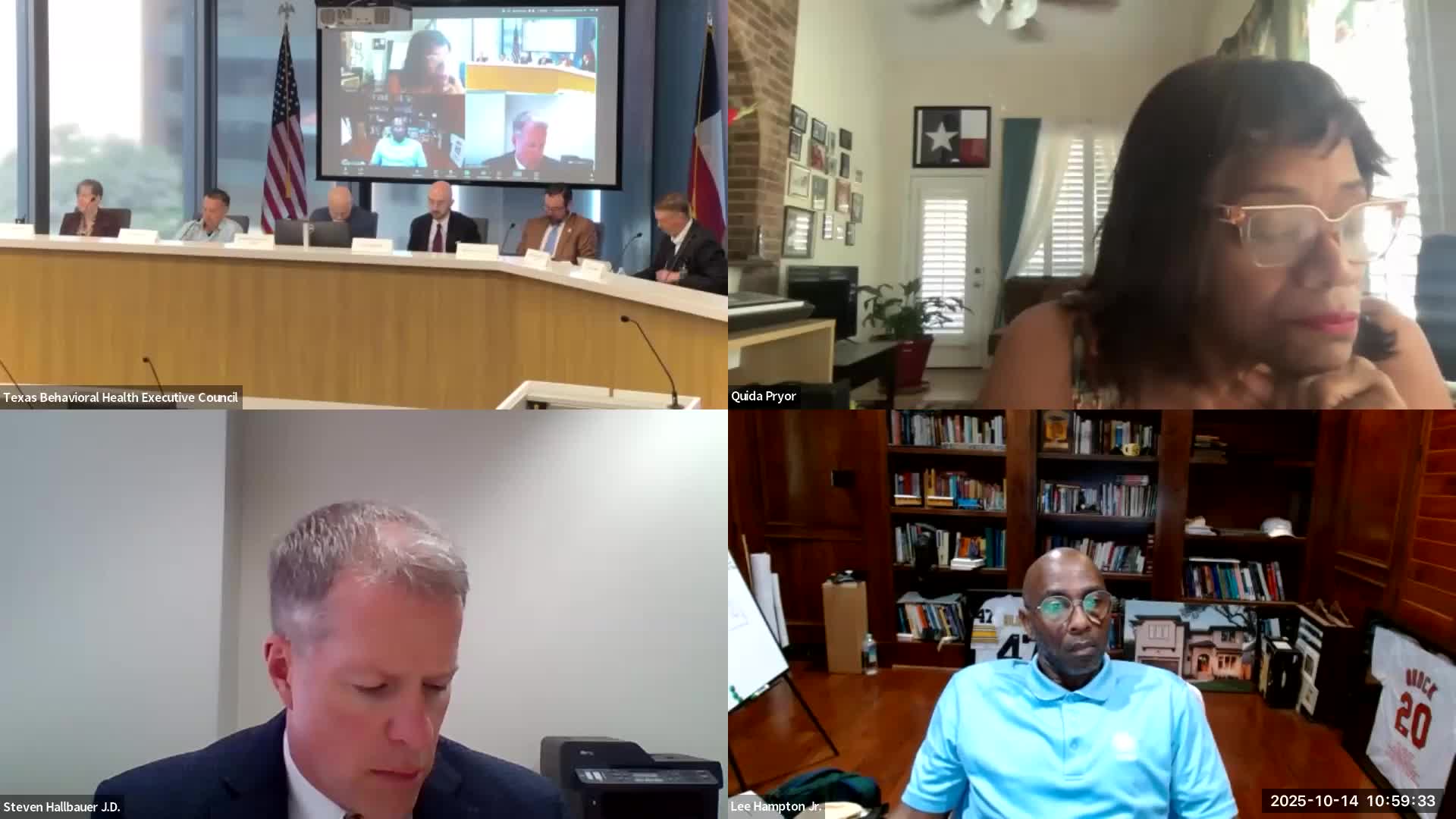BHEC enforcement caseload jumps; agency hiring and options discussed
Get AI-powered insights, summaries, and transcripts
Subscribe
Summary
BHEC staff reported a 33% rise in complaints to more than 800 last fiscal year, described current hiring challenges for enforcement attorneys and flagged possible use of law student interns and other efficiency measures.
Agency leadership told the Texas Behavioral Health Executive Council that complaints are rising faster than planned, prompting staffing and process questions.
Daryl Spinks, BHEC's executive director, told the council the agency had budgeted for roughly 600 complaints per fiscal year but received more than 800 complaints last year, a roughly 33% increase. Staff resolved more than 600 complaints and the agency has worked to increase enforcement efficiency, but Spinks said the pending caseload remained high: as of the morning before the meeting, 799 complaints were pending.
Spinks said the agency is hiring a second staff attorney (one was already hired) but that filling attorney positions in state service is difficult. "It is an incredibly difficult job market right now trying to hire attorneys for state agencies," he said, noting the Legislature's recent across-the-board pay bump for state attorneys to assist recruitment. He said the agency is considering creative solutions, such as hiring law students as interns to work under staff attorneys, and asked council members to tell qualified candidates about openings.
The council and staff discussed why complaints rise and whether the increase is proportional to licensee growth. The LPC board has the largest population of licensees and also has more complaints in absolute numbers, staff said; major complaint categories include standard-of-care, professional misconduct and unprofessional conduct. Staff emphasized that many complaints are dismissed or resolved without disciplinary sanctions; roughly 17% of resolved complaints led to disciplinary action.
What they decided: Council members expressed support for additional staffing and asked staff to return with more detailed proposals. Staff said they would pursue a second staff attorney hire and explore using law school interns to supplement enforcement work while following appropriate legal and supervisory safeguards. The council did not adopt a formal rule change; staff said they will propose a policy and report back at a future meeting if the council prefers to review a draft before implementation.
Why it matters: A growing complaint backlog affects timeliness of investigations and licensee due process, and decisions about staffing and alternative models will shape how quickly cases are resolved and whether enforcement can keep pace with licensee population growth.
